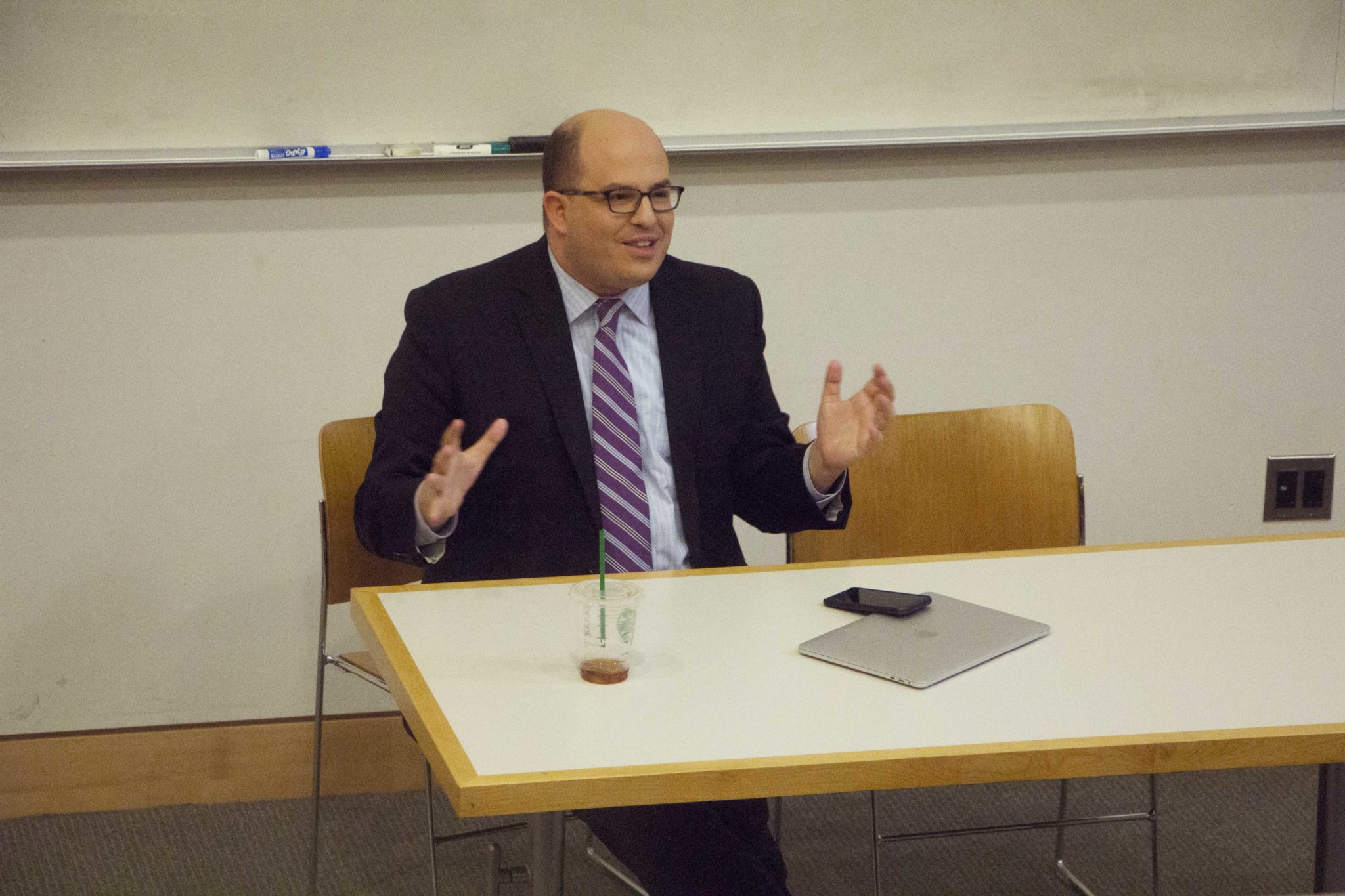
Brian Stelter, the senior media correspondent for CNN and host of “Reliable Sources,” discussed journalism in an era of misinformation at a talk on Wednesday afternoon. The event drew about 20 students, community members and visitors, including Rebecca Schneid, a junior at Marjory Stoneman Douglas High School, who appeared last week on “Reliable Sources” to talk about the March for Our Lives.
“[The rise of fake news] is such a great opportunity for journalists and reporters in newsrooms to take on this task of sorting out what’s fact and what’s fiction,” Stelter said during the talk. “In an age where everything is a source and everybody is a source, the question for journalists is: What is reliable?”
Since he joined CNN in 2013, Stelter said, the biggest change to journalism has been the rise of misinformation, which he said is “polluting our media ecosystem.”
Stelter, whose show scrutinizes each week’s top news stories, dissected the phenomenon of “fake news,” describing it as a spectrum that ranges from misinformation — false, intentionally harmful reporting — to “malinformation,” which is accurate information contorted to confuse, deflect or deny reality.
Stelter also discussed whether journalism is a form of activism, a debate that arose from his interview with Schneid on Sunday. During the interview, Schneid, who is also the co-editor-in-chief for Marjory Stoneman Douglas’s newspaper, argued that the act of elevating the voices of certain people through journalism is an inherent form of activism. Schneid attended Wednesday’s talk while at Yale for a college visit.
In an interview after the event, Schneid said she identifies as both a journalist and activist in the wake of the recent mass shooting at her high school, as she covers the March for Our Lives movement for her school newspaper and advocates gun reform alongside her classmates.
“For any journalist, when you cover a tragedy, you have to compartmentalize and cover it, and you also have to deal with your own emotions,” Schneid said. “And for me, that’s tenfold: … It’s a lot of trying to find a balance between being a survivor and being a journalist and also someone who’s trying to fight for change at the same time.”
Asked about the false accusations proliferating in far-right media that Stoneman Douglas students are paid actors, Schneid said she mostly finds the conspiracies “funny.”
“If the only thing that they can criticize us about is our age or that we’re crisis actors, obviously we’re doing something right,” she said. “They can’t find any fault in our argument. We find all that funny to us because it just means they’re threatened by us and that means they know they’re doing something wrong.”
Still, Schneid stressed that disrespectful comments about the shooting and victims’ families are deeply upsetting.
During the talk, Stelter admitted that he is concerned about the issue of fake news worsening in the future but said that its rise has also increased interest in media coverage and the work of journalists.
“[President Donald] Trump has provoked some very basic questions about journalism, and I thank him for that,” Stelter said. “It’s a gift that he’s given journalists the chance to challenge our biases and to explain ourselves.”
While he acknowledged that fact-checking Trump often puts anchors and journalists in an “adversarial position,” Stelter said that he aims to strike a decent tone in his work and avoid seeming smug or overly combative. He added, however, that he believes “shaming and naming” propagators of misinformation is also a way to counter the spread of fake news.
Ruchira Rya ’21, who attended Tuesday’s event, said she was drawn to the talk because she regularly watches “Reliable Sources” on TV. She added that she appreciated how Stelter made distinctions between different types of misinformation.
“Reliable Sources” airs every Sunday at 11 a.m. EST.
Alice Park | alice.park@yale.edu







